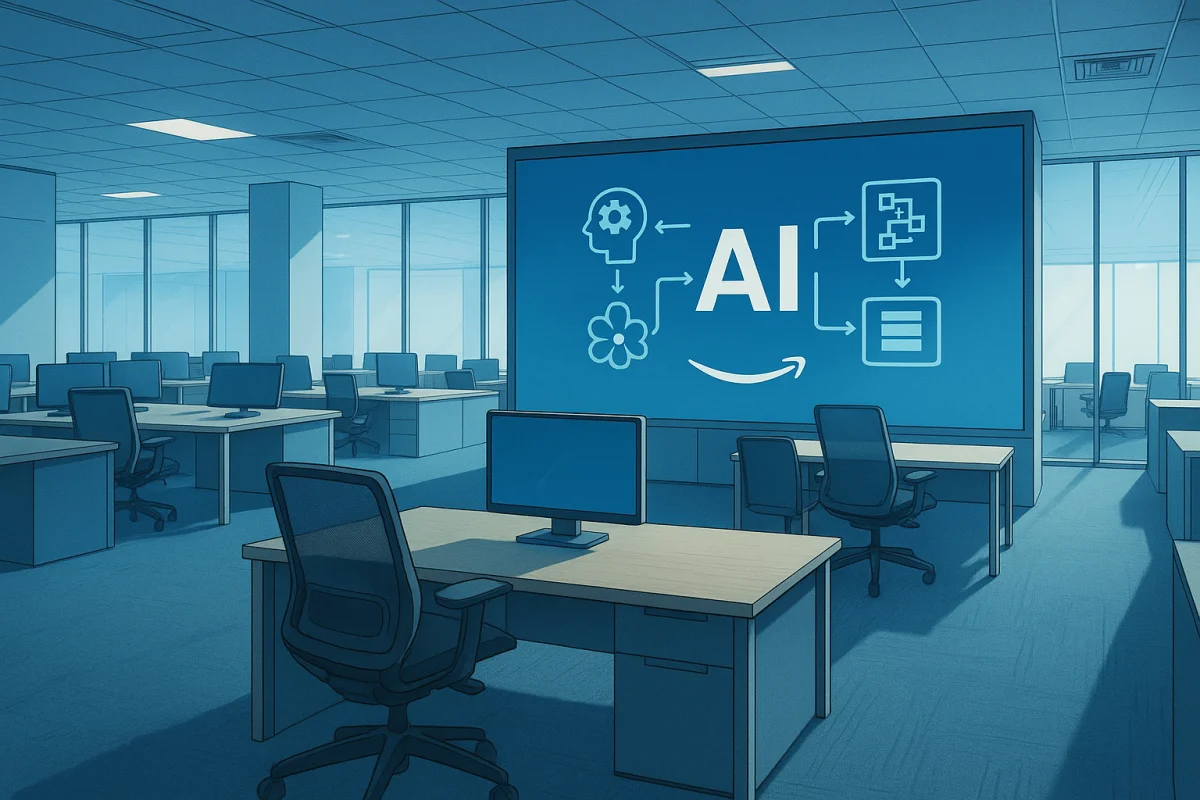Amazon Announces: AI Will Cut White-Collar Jobs — Jassy’s Warning
It may come as a surprise, but on June 17, Amazon CEO Andy Jassy sent an internal memo to employees: generative artificial intelligence (AI) will be “the most transformative technology of a generation,” and will likely lead to a reduction in white-collar positions. While the company has expanded massively in recent years, it’s now preparing for deep changes — leaner teams, an AI-driven strategy, and significant shifts for staff over the next 5-10 years.

How Will AI Change Amazon?
Jassy revealed that the company has rolled out over 1,000 generative AI tools in recent years, including Alexa+, an AI-powered shopping interface, SageMaker, and Bedrock. This is driving a need to reduce and reorganize corporate teams — out of approximately 350,000 staff, many positions are shifting or being eliminated.
Employee Reaction and Impact
The memo emphasized that AI-based agents are automating dozens of complex tasks. Management pitched this as an “efficiency gain,” but the changes have triggered employee burnout and layoffs as teams face rapid adaptation. Internal criticism about workload and uncertainty remains high.
Industry Effects and Outlook
Pew and OECD research suggests that AI could reduce white-collar jobs by 20–50% in the next 5–10 years. At the same time, there’s a growing demand for new AI collaboration skills like critical thinking, emotional intelligence, and change management.
What Should Employees Do?
Jassy advised: “Be curious about AI, educate yourself, attend workshops and take trainings… Those who embrace this change… will be well-positioned to have high impact.” In other words, learning to work with AI, pursuing continuous education, and adapting across the company will help employees stay relevant in this new reality.
Conclusion
Amazon is shifting to leaner, agent-AI-powered operations. White-collar roles are at risk, but those who can partner with AI and develop new skills will remain valuable. By 2030, many traditional jobs will change — and those who can’t adapt may find themselves left behind.
📌 What do you think — should AI be seen as a colleague or as a threat? Share your thoughts in the comments!
✍️ Thornike • July 30, 2025
✍ Article Author
- Registered: 27 April 2025, 10:30
- Location: Georgia




 Tornike
Tornike